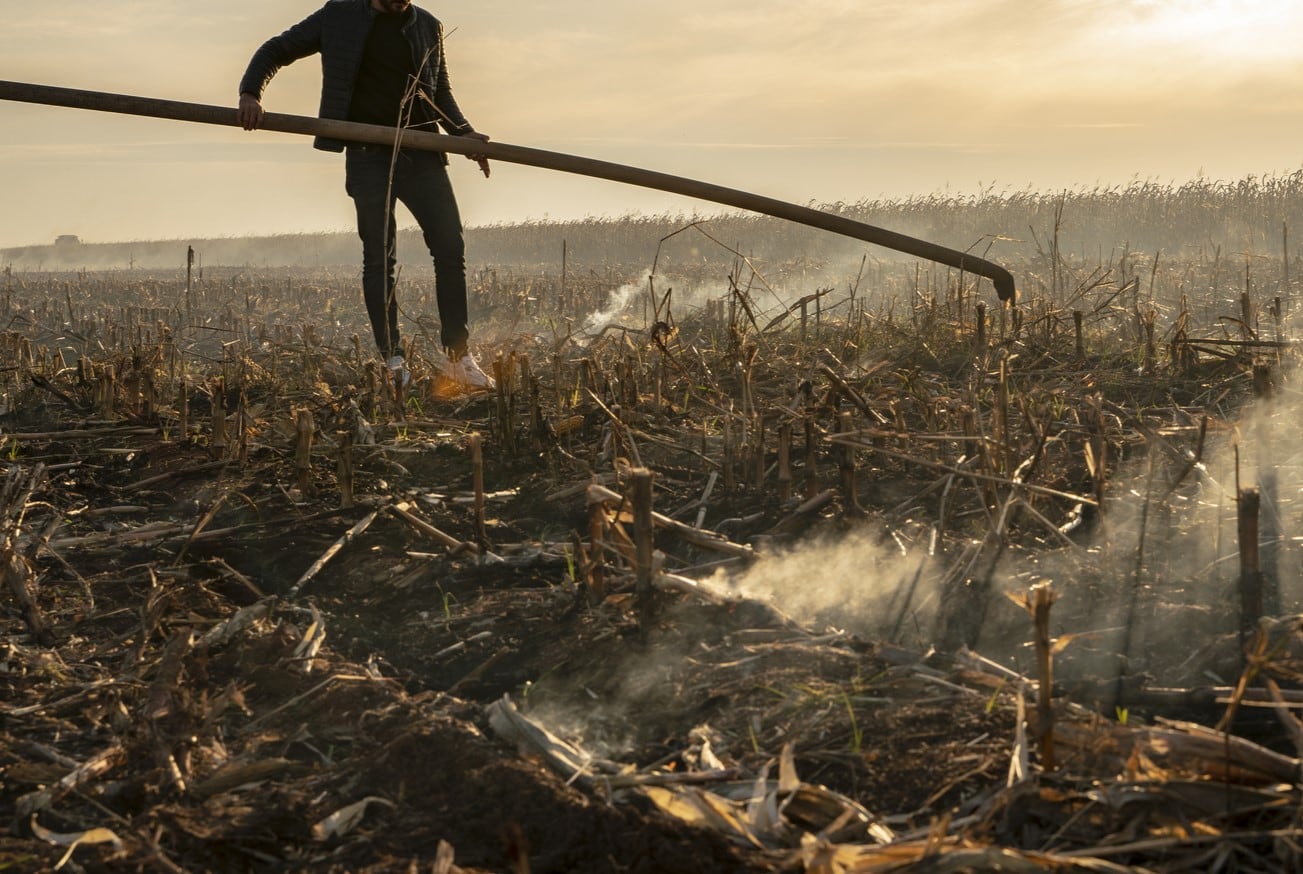Living Roots specialise in high-performance bio-fertilisers made from waste products that are designed to replace chemical inputs entirely.
Not only is this more sustainable and healthier for the soil, but the firm also claims to be able to boost crop yields by 30% to 60%.
Aside from bio-fertilisers, co-founders Avika Narula and Abhi Agarwal have observed a major opportunity to combat the issue of large-scale crop burning in South East Asia with a biological solution.
This routine burning is a major environmental, social, and economical problem in the region. Every year, farmers across countries the region intentionally set fire to their fields as a quick and cheap way to clear agricultural waste. However, this comes at a cost to the environment and public health.
Furthermore, the routine burning depletes soil quality and causes the land to become dependent on fertilisers.
“This does not only cause air pollution, but burning also locks up certain nutrients in the soil. I don’t think many people are aware that this is a poor practice in terms of soil health. Switching over to using something that degrades the crop residue actually helps improve the soil over time,” said Narula.
Speaking to AgTechNavigator, the co-founders claimed that the firm’s biological solution – known as Activate – is able to degrade crop waste within two to three weeks.
Like its bio-fertilisers, the product integrates seamlessly into existing farming practices, requiring no additional equipment or changes to current methods.
“Within a week or so of harvesting, you can spray this on with your regular farm equipment on the field. You don’t have to move it or take it somewhere. The microbes and the nutrients that are in the product degrades the crop residue,” said Narula.
The company has also ensured that its cost is accessible for farmers.
“There is a big movement to stop crop burning and we have a solution that we can scale. It’s actually super affordable at $5 an acre. Additionally, farmers save $10 an acre on fertiliser costs because of this,” said Agarwal.
The product is currently used on a small scale but the firm aims to expand to thousands of acres in the coming months, with major growth planned by year-end in time for the burning season.
“We have started in small capacity. I think this will be used in a few thousand acres in the next few months, but we are really trying to go big with it at the end of this year because the crop burning season is from January to April. We’re trying to build up our resources and go big because it is such a hindrance to life in SEA,” said Agarwal.
What’s next
In addition to expanding the business in crop waste management, the company is also working on a digital platform which can help farmers manage their fertiliser use.
“The main challenge is how to recommend to businesses that work with farmers what management changes to make – when to spray, when to apply fertiliser. With software now, it’s much easier to develop. We want to leverage it to say these are your land management practices for the next five years. We can understand from satellite data, for example, that your crop is 40 days old and facing certain challenges. It’s part of seeing land holistically,” said Agarwal.
Additionally, the company was recently selected as part of ClimAccelerator’s 2025 cohort.
“We were super excited to find an accelerator programme that really like matched our vision and our mission. We have been a part of an accelerator before, but they were not so fine tuned to what we wanted to actually achieve. The fit there is just so clear for us. We are looking forward to having them help us refine our climate impact strategy. And I think that would be really great to help us connect with partners in other regions,” said Narula.




